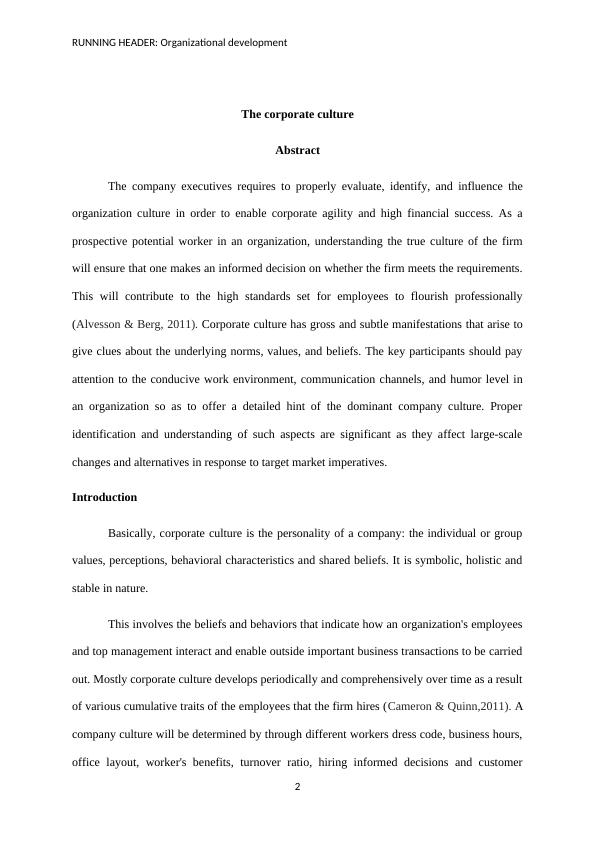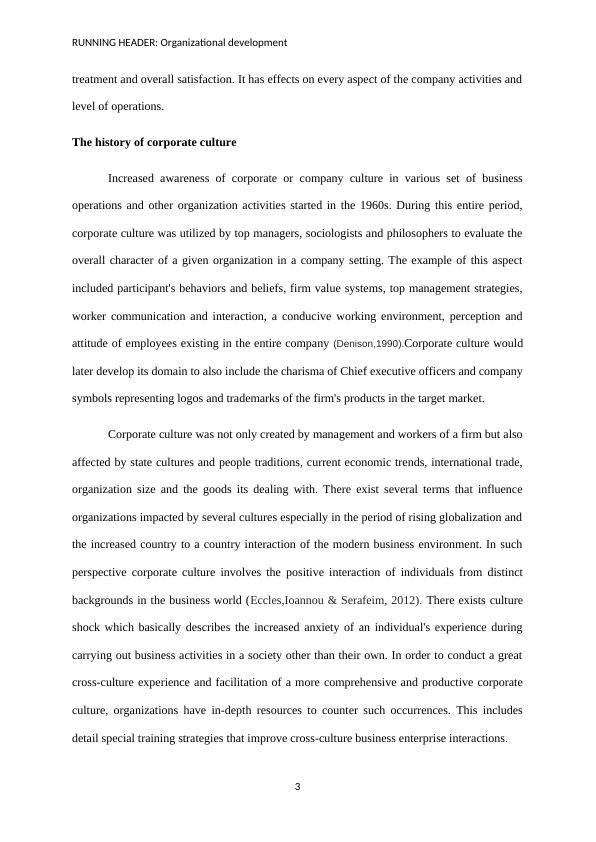Understanding Corporate Culture: Importance, Characteristics, and Examples
9 Pages1892 Words270 Views
Added on 2023-06-09
About This Document
This article discusses the importance of understanding corporate culture, its characteristics, and examples of successful corporate cultures. It explains how corporate culture affects every aspect of a company's activities and operations, and how it can be identified through various aspects such as work environment, communication channels, and humor level. The article also highlights the significance of corporate culture in recruitment, policy-making, and mergers and acquisitions.
Understanding Corporate Culture: Importance, Characteristics, and Examples
Added on 2023-06-09
ShareRelated Documents
End of preview
Want to access all the pages? Upload your documents or become a member.
BSBLDR523 - Workplace Culture Assignment
|16
|3842
|52
Corporate Culture Assignment Sample
|5
|943
|16
Corporate Culture and Its Impact on Organizational Growth
|9
|1600
|103
Managing People and Organization
|15
|4175
|355
Report On The Corporate Culture In Unilever Organization
|17
|5138
|2207
Cross Cultural Management: Doc
|8
|2964
|22



